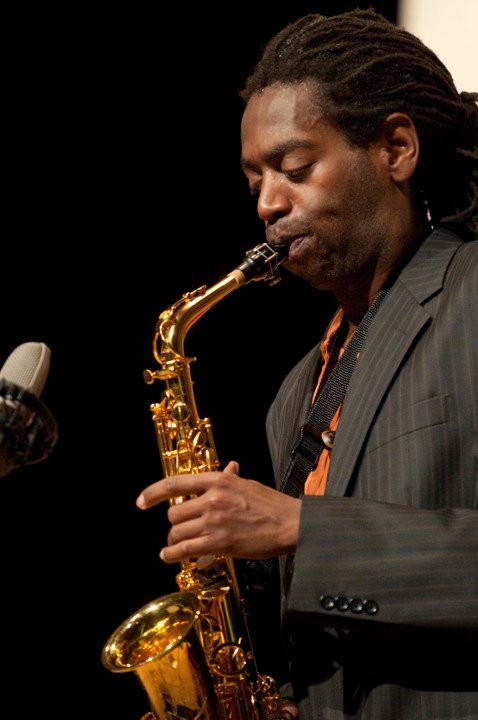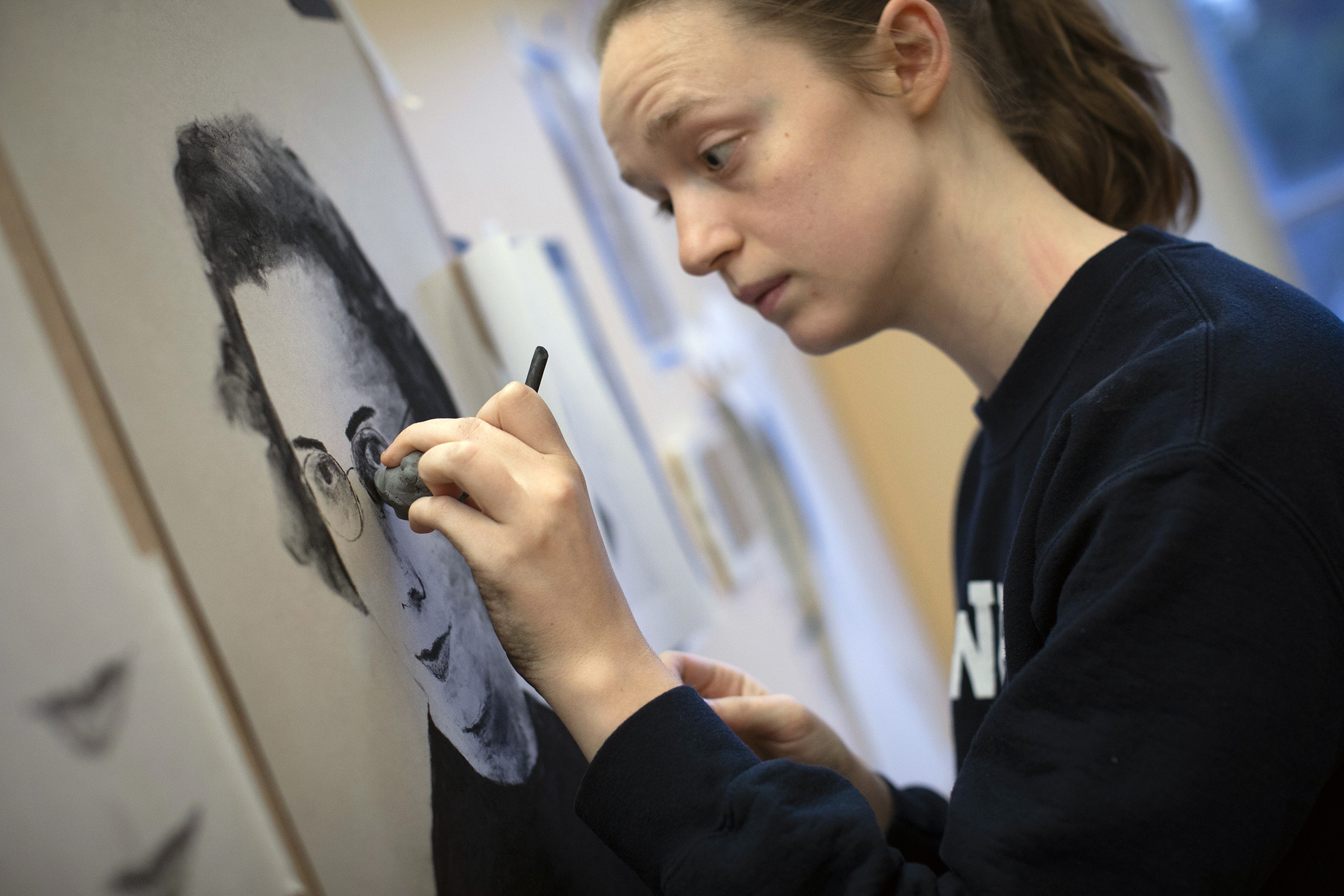
Yosvany Terry: Connecting Cultures Through Music
Yosvany Terry, an internationally acclaimed musician and educator, seamlessly intertwines the rich traditions of Afro-Cuban music with his passion for fostering musical identity among his students. As the director of the Harvard Jazz Ensemble, Terry seeks to bridge the gap between distinct musical heritages, drawing inspiration from his recent research travels to West Africa and Cuba. This journey illuminated the intricate connections between West African traditions and their influence on Caribbean music, revealing the depths of cultural preservation that has defined musical expression throughout history. At the upcoming ‘ArtsThursdays’ event on May 1, Terry aims to share this vibrant tapestry of sounds and stories, captivating audiences with a performance that underscores the importance of safeguarding these musical legacies. Through his work, Yosvany Terry not only champions the evolution of jazz but also encourages a broader appreciation for the layered narratives that shape our collective artistic landscape.
The captivating journey of Yosvany Terry exemplifies the transformative power of music in shaping cultural narratives and identity. By engaging with Afro-Cuban rhythms and their West African roots, Terry fosters a profound understanding of the intersections between various musical forms, particularly within the framework of jazz. His educational endeavors at Harvard University serve as a platform for exploring the historical influences that continue to resonate in contemporary music. Upcoming performances, particularly those featured in ArtsThursdays, further illustrate how Terry brings these concepts to life, encouraging audiences to embrace the diversity of musical expression. In essence, Terry’s work not only enriches the academic landscape but also invites a wider audience to celebrate the artistic connections that transcend borders.
The Connection Between Afro-Cuban Music and West African Traditions
Afro-Cuban music stands as a vibrant testament to the fusion of diverse cultural legacies, particularly those stemming from West African traditions. The historical context of slavery and the African diaspora reveals how these original musical components transformed into contemporary genres found in Cuba today. Influences like polyrhythmic drumming, call and response vocals, and traditional instruments from West Africa are intricately woven into the fabric of Cuban music. Notably, the resilience of these rhythms continues to be a crucial part of Yosvany Terry’s artistry, showcasing a profound connection that transcends geographical borders.
During his recent research expedition in Benin, Yosvany Terry delved deep into the rich musical heritage of the West African region, uncovering traditions that have significantly impacted the development of jazz and other genres in the Americas. This exploration underscores the importance of understanding and preserving the cultural expressions that are rooted in the legacies of ancestors. By preserving and promoting these traditions, artists like Terry not only honor their past, but they also enrich their future work, contributing to a broader understanding of identity in music. His ongoing efforts reflect the need for cross-cultural dialogue, revealing how Afro-Cuban music acts as a living bridge to West African roots.
Frequently Asked Questions
What is Yosvany Terry’s focus in his research related to Afro-Cuban music?
Yosvany Terry’s research primarily explores the connections between Afro-Cuban music and West African traditions, particularly how these cultural roots have influenced modern jazz and musical identities across the Americas. His work involves engaging with local musicians in Benin and Cuba to better understand the persistence of these traditions in shaping contemporary music.
How does Yosvany Terry incorporate his research into the Harvard Jazz Ensemble?
As the director of the Harvard Jazz Ensemble, Yosvany Terry integrates his research findings on Afro-Cuban music and West African traditions into the curriculum. He provides students with access to primary source materials, allowing them to explore the cultural significance of these traditions and their impact on jazz and popular music.
What role does ArtsThursdays play in Yosvany Terry’s artistic work?
ArtsThursdays serves as a platform for Yosvany Terry to showcase his artistic work, including performances that reflect his research on Afro-Cuban music and its ties to West African traditions. This initiative fosters collaboration across disciplines at Harvard while bringing vibrant artistic expressions to the community.
What can audiences expect from Yosvany Terry’s performance on May 1?
Audiences can expect a compelling performance titled ‘Imaginary Dialogues: Dahomey’ from Yosvany Terry, set for May 1. This event will highlight the connections between historical traditions and contemporary expressions in Afro-Cuban music, showcasing the rich narrative that Terry has researched in both Cuba and Benin.
How does Yosvany Terry view the significance of musical identity in his work?
Yosvany Terry emphasizes the importance of musical identity in his work by illustrating how Afro-Cuban music has evolved from West African traditions. He aims to teach his students about the historical context of these musical styles, encouraging them to recognize and celebrate cultural heritage as integral to personal and collective identity.
In what ways does Yosvany Terry promote collaboration in the arts at Harvard?
Yosvany Terry actively promotes collaboration in the arts at Harvard by inviting diverse artists, particularly those of Afro-Latin descent, to participate in the Harvard Jazz Ensemble. He encourages interdisciplinary projects, such as combining music with technology and exploring AI’s role in understanding musical traditions.
What is Yosvany Terry’s vision for the future of arts education at Harvard?
Yosvany Terry envisions an expansive and inclusive future for arts education at Harvard, aiming to incorporate a wider array of musical traditions and invite leading artists to engage with students. He believes in fostering a rich cultural dialogue that enhances the understanding and appreciation of diverse arts within the university community.
How does Yosvany Terry’s background influence his teaching and research?
Yosvany Terry’s Cuban heritage significantly influences his teaching and research, as it provides him with unique insights into the preservation of Afro-Cuban music and its connection to West African traditions. His personal experiences allow him to connect deeply with students and share the cultural significance of these musical legacies.
What impact does Yosvany Terry hope to achieve through his research and performances?
Through his research and performances, Yosvany Terry hopes to raise awareness of the historical and cultural connections between Afro-Cuban music and West African traditions. He aims to inspire students and audiences to appreciate the depth of these musical identities and their influence on contemporary culture.
| Key Points | Details |
|---|---|
| Yosvany Terry’s Research | Investigates musical traditions from Benin and Cuba to understand the roots of modern jazz and the African diaspora’s impact on music. |
| ArtsThursdays Event | Terry will present a performance titled “Imaginary Dialogues: Dahomey” on May 1, which connects his research to live performance. |
| Focus on Education | Aims to integrate findings into Harvard’s music curriculum, inspiring students to explore cultural identities through music. |
| Collaboration with Other Departments | Terry emphasizes interdisciplinary work, including projects with electrical engineering to use AI in music composition. |
| Cultural Preservation | Stresses the importance of safeguarding musical traditions as a form of cultural rebellion and identity maintenance. |
| Future Aspirations | Plans to expand Harvard’s arts offerings and engage a broader range of students in musical traditions. |
Summary
Yosvany Terry is a pivotal figure in exploring and preserving the musical traditions that bridge West Africa and the Caribbean. His research not only highlights the rich tapestry of cultural identities influenced by music but also aims to inspire the next generation of musicians and educators at Harvard. Terry’s integration of traditional music into modern contexts ensures that these vital cultural narratives continue to resonate and evolve.


